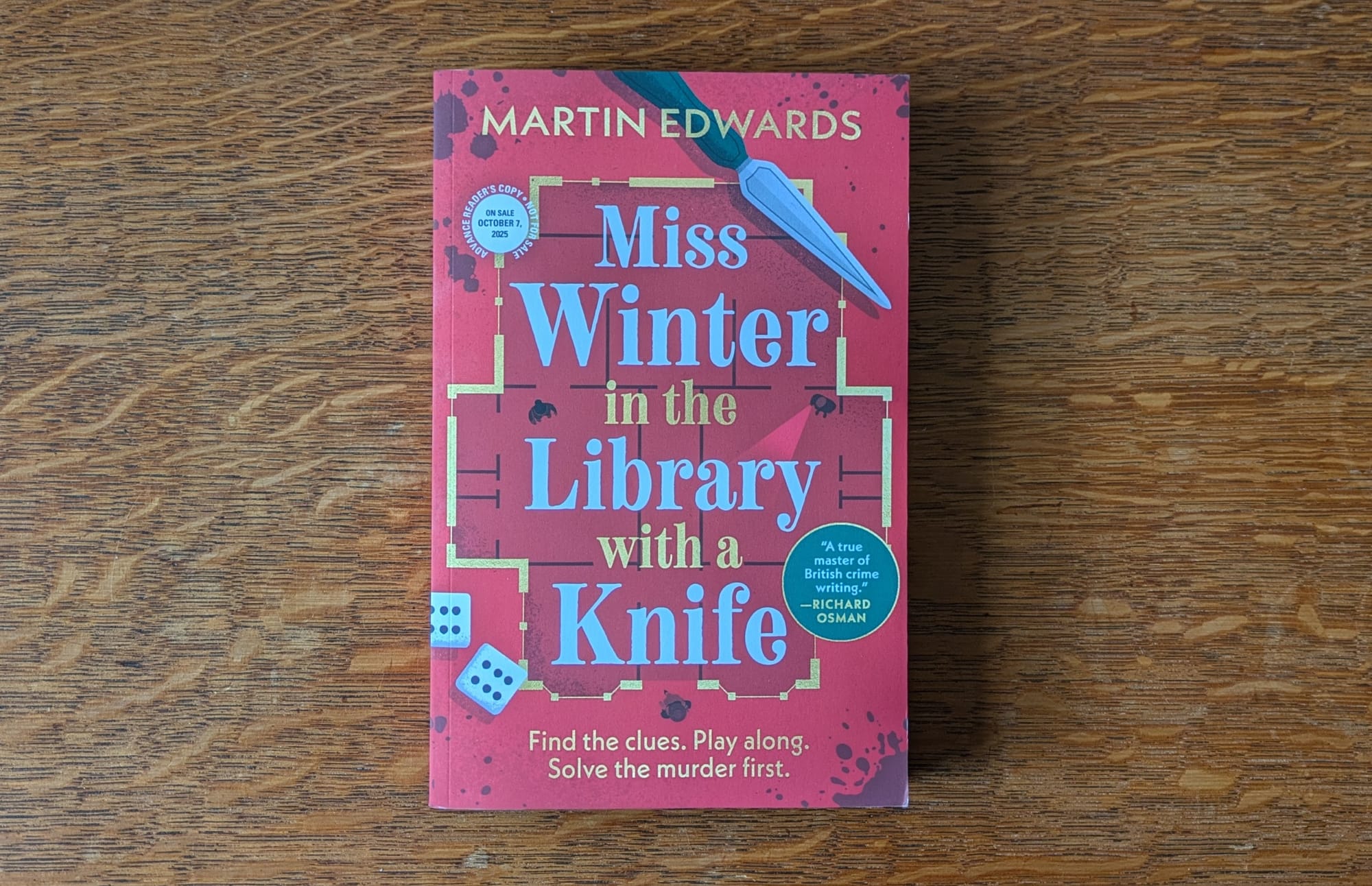The Art of the Cluefinder
Dear listeners,
Are you the kind of reader who likes to solve the mystery as you read, racing the detective to the solution, or do you prefer to spectate and allow the author to lay out the resolution for you? Personally, I flip between these two styles: there are some books that bring out my competitive edge and others that I like to revel in without constantly thinking about clues and red herrings. I'm also an enthusiastic re-reader of mysteries, because finding out whodunnit is only one part of the pleasure this genre gives me.
When I am reading in the former mode, I do like to know that my reasoning was right when I reach the end. Of course this can be achieved by going through the book again — and I have done this with Agatha Christie's novels in particular, trying to spot the moment when she successfully pulled the wool over my eyes — but some books contain footnotes or a special appendix that makes this checking easy. The latter can take the form of a "cluefinder": an index of clues with the page reference for where each one can be found so that the reader can verify their own hypothesis and see how the writer laid their traps. I can't show you a picture of one without completely spoiling the novel to which it belongs, but I hope my description is adequate to give you a general idea if you haven't encountered one in the wild yet.
The cluefinder was never a requirement for publishing a whodunnit during the golden age of detective fiction. Books that had them were in the minority, and the ones that did tended not to be the big hits by the likes of Christie or Sayers. But I've come across enough of them over the years to be curious about why they were included and how they are constructed. And so when Martin Edwards' new novel landed on my desk earlier this summer and I saw that, despite being a work of contemporary crime fiction due to be published in autumn 2025, it had a cluefinder, I had to know more.

Martin has been a frequent guest on Shedunnit over the years and had contributed greatly to the show with his deep historical knowledge of golden age detective fiction (you might like to check out his episodes about the Detection Club or The Poisoned Chocolates Case to name just two). It was a nice change, though, to talk about his own fiction-writing process and learn how he marries his interest in all things golden age with the demands of publishing novels for the twenty-first century reader.
The cluefinder proved to be the perfect motif for our discussion: it's a niche curiosity that is very much of the interwar period which has proved surprisingly popular with the modern reader as more people have become interested in the kind of novel that plays fair and allows them to play along. Martin's new book, Miss Winter in the Library with a Knife, is set now and is full of the trappings of modern life (including a very funny author character who, I'm told, might have been a little inspired by his creator's own experiences in the publishing industry) but it's also stuffed with tropes and ideas that seasoned readers of golden age detective fiction will recognise with glee. And don't worry, this episode doesn't spoil anything — you can listen to it and then still fully enjoy Miss Winter's twists.
If you would like to try a golden age novel that contains a cluefinder, I would recommend keeping an eye out for one of the following titles:
- The Ten Teacups by Carter Dickson
- The Eye in the Museum by J.J. Connington
- The Hog’s Back Mystery by Freeman Wills Crofts
- Obelists Fly High by C. Daly King
- She Had to Have Gas by Rupert Penny
Any one of those should scratch the itch! I wish you the best of luck in spotting the clues and then confirming that you were right all along.
Until next time,
Caroline
You can listen to every episode of Shedunnit at shedunnitshow.com or on all major podcast apps. Selected episodes are available on BBC Sounds. There are also transcripts of all episodes on the website. The podcast is now newsletter-only — we're not updating social media — so if you'd like to spread the word about the show consider forwarding this email to a mystery-loving friend with the addition of a personal recommendation. Links to Blackwell’s are affiliate links, meaning that the podcast receives a small commission when you purchase a book there (the price remains the same for you).
